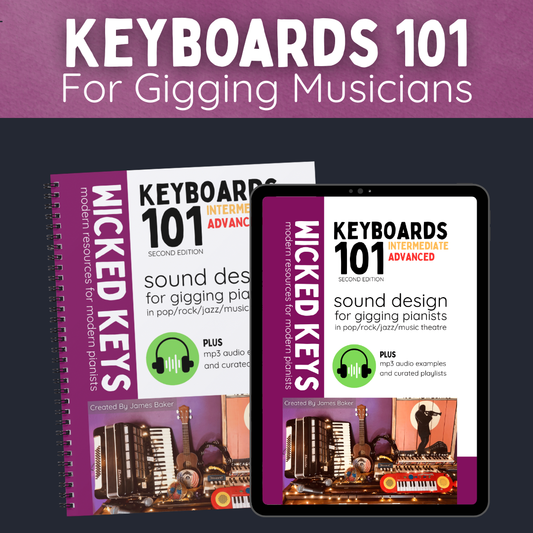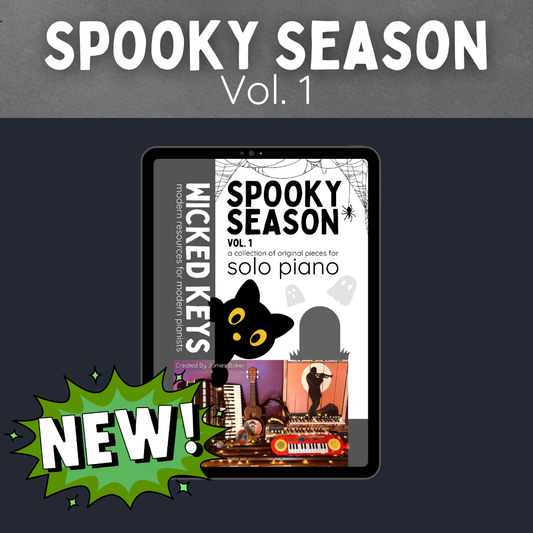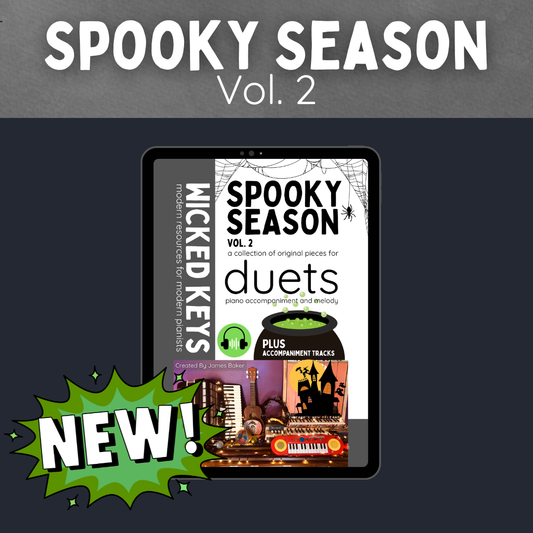
7 Reasons Every Pianist Should Learn from Lead Sheets
Share
Lead sheets, which combine a melody with chord symbols, are more than a shortcut for playing songs. They are a powerful tool for pianists of all levels to deepen their understanding of music, explore improvisation, and make playing piano accessible and enjoyable.
Here are 7 reasons to start learning from lead sheets today.
1. Learn Songs Faster
Lead sheets focus on the melody and chords, making it easier to play songs without getting stuck on complex notation. By focusing on the essentials, you can quickly play and experiment with your favorite tunes while gaining a solid grasp of the underlying harmony.
2. Build Chord Recognition and Theory Skills
Working with lead sheets strengthens your knowledge of chords, inversions, and extensions. By seeing and playing chords in real time, you develop a deeper understanding of harmonic structure. Over time, this improves your ability to analyze both modern and classical pieces and makes you a more versatile musician.
3. Explore Improvisation
Once you understand the melody and chords, lead sheets give you the freedom to improvise. You can try different chord voicings, add rhythms, or create your own variations. This makes practicing more creative and engaging, and builds skills that are essential for jazz, pop, and contemporary music.
4. Make Music Accessible
Lead sheets simplify the learning process, especially for beginners. Instead of memorizing every note, you focus on melody and harmony, making it possible to play songs that might otherwise feel too difficult. This approach makes music more approachable and helps learners of all ages feel confident at the piano.
5. Bridge Musical Styles
Lead sheets are universal. They allow you to explore classical, jazz, pop, and contemporary styles without needing separate sheet music for each genre. This versatility helps you understand music more broadly and opens opportunities for collaboration with other musicians.
6. Develop Accompaniment Skills
By learning to interpret chord symbols, you can create interesting accompaniments for any melody. You develop techniques for supporting the music dynamically, adding rhythmic variety, and using inner and outer voices effectively. These are essential skills for solo playing and performing with others.
7. Make Piano Practice Fun
Lead sheets turn piano practice into an enjoyable and creative experience. Instead of rigidly following a score, you can experiment with chords, try different rhythms, and develop your own interpretations. This sense of freedom keeps practice engaging and motivates you to play more often.
The Bottom Line
Lead sheets are a gateway to better musicianship. They help pianists develop chord theory, explore improvisation, and make playing piano accessible and fun. By learning from lead sheets, you gain the tools to understand music deeply and express yourself creatively.
To start building these skills, Lead Sheet 101 is the ultimate guide. It shows you how to read chords, voice harmonies across hands, and use improvisation to make music your own.




![Lead Sheet 101 eBook [Single License] Pay What You Can](http://wickedkeys.com.au/cdn/shop/files/wickedkeys.com.au.png?v=1760493645&width=533)
![An Easy Christmas eBook [Single License] Pay What You Can](http://wickedkeys.com.au/cdn/shop/files/Product_Cards-2.png?v=1760559825&width=533)








![[COMING SOON] Junior Jazz Vol. 1](http://wickedkeys.com.au/cdn/shop/files/22_497fc077-4911-4527-bfad-a7749288e7ca.png?v=1759207635&width=533)
![[COMING SOON] Beginner Blues Vol. 1](http://wickedkeys.com.au/cdn/shop/files/23_844563d1-4c1b-4d59-97de-72c8f9c5122a.png?v=1759207694&width=533)
![[COMING SOON] Accompanying 101](http://wickedkeys.com.au/cdn/shop/files/18_f4c8b907-7385-46b3-801a-77b28cf7d83d.png?v=1759143867&width=533)
![[COMING SOON] Lead Sheet 102](http://wickedkeys.com.au/cdn/shop/files/17_5e2c6a47-e49a-4de2-b4d8-c72a4ed236f6.png?v=1759143867&width=533)
![[COMING SOON] The Business of Teaching Music](http://wickedkeys.com.au/cdn/shop/files/13_9b7bd319-bf2d-4b22-997d-4df4caa52375.png?v=1759143866&width=533)